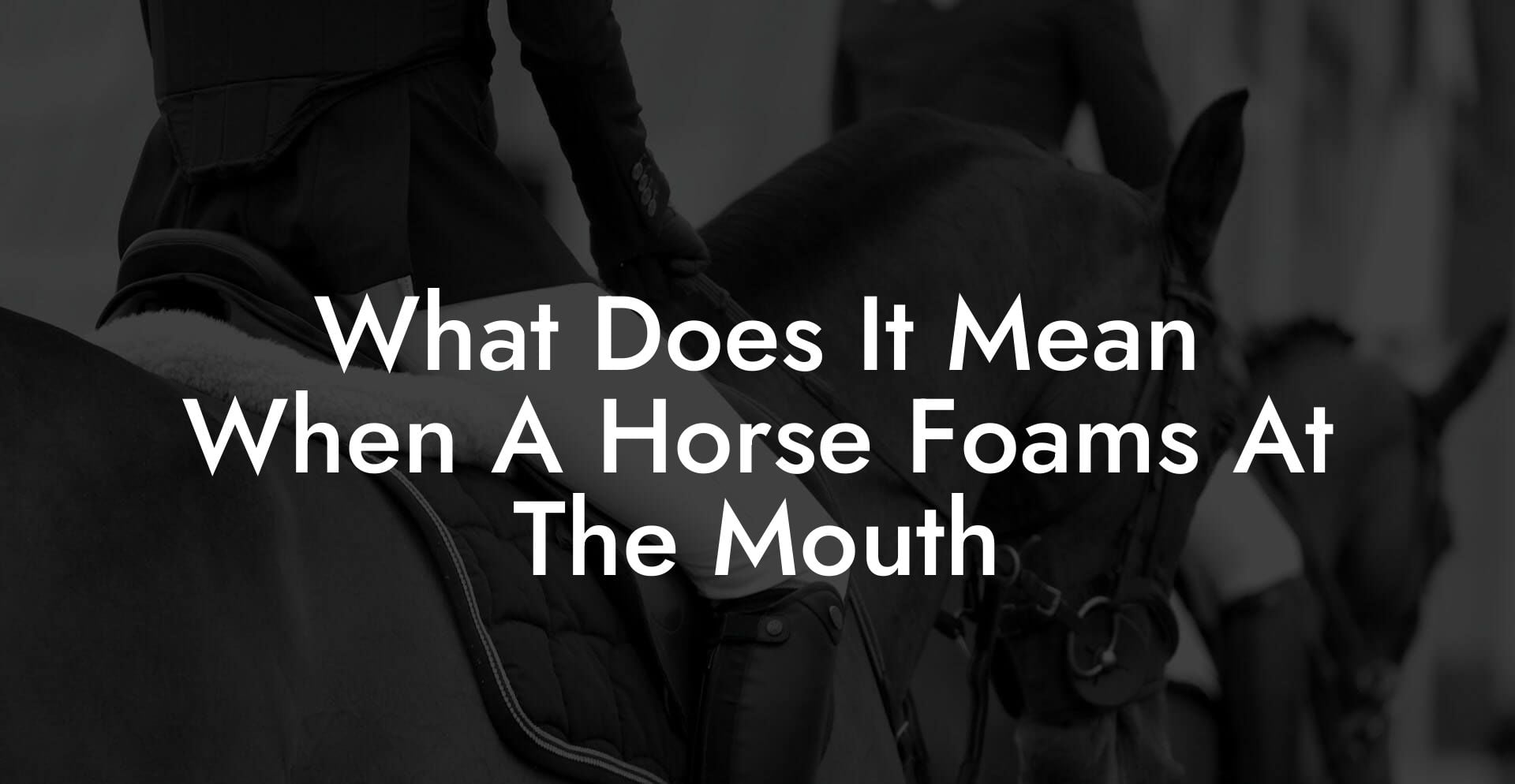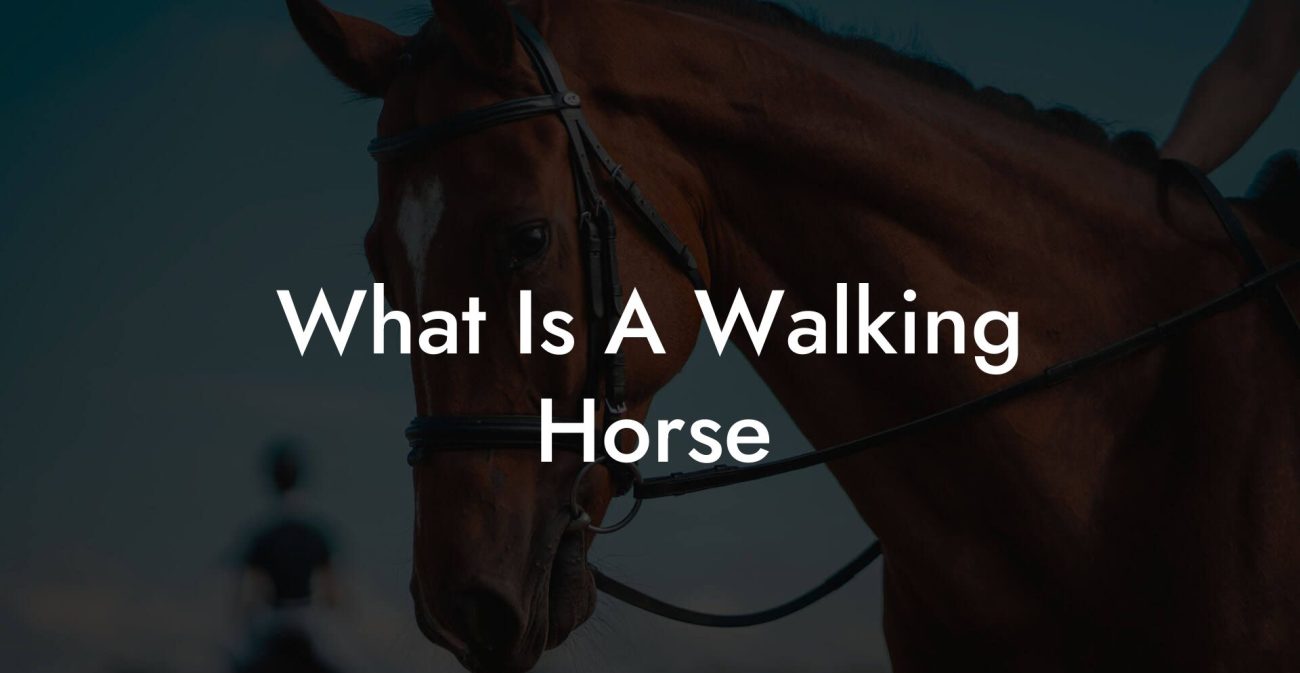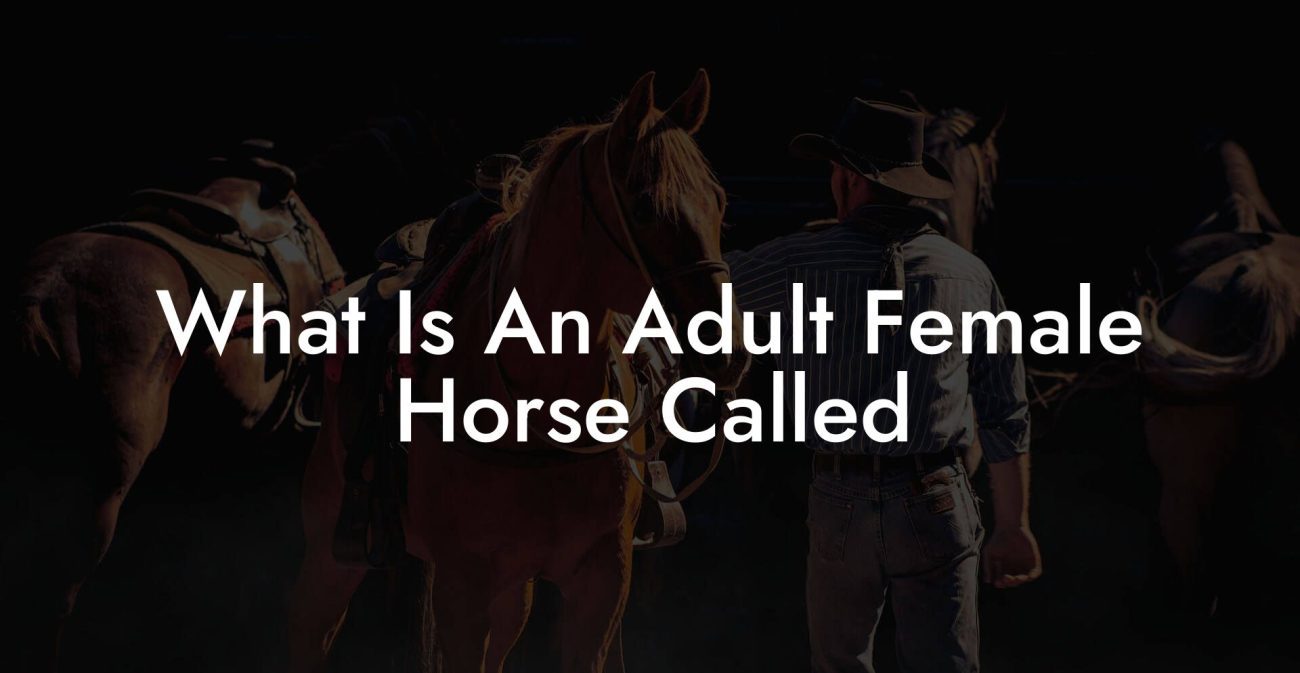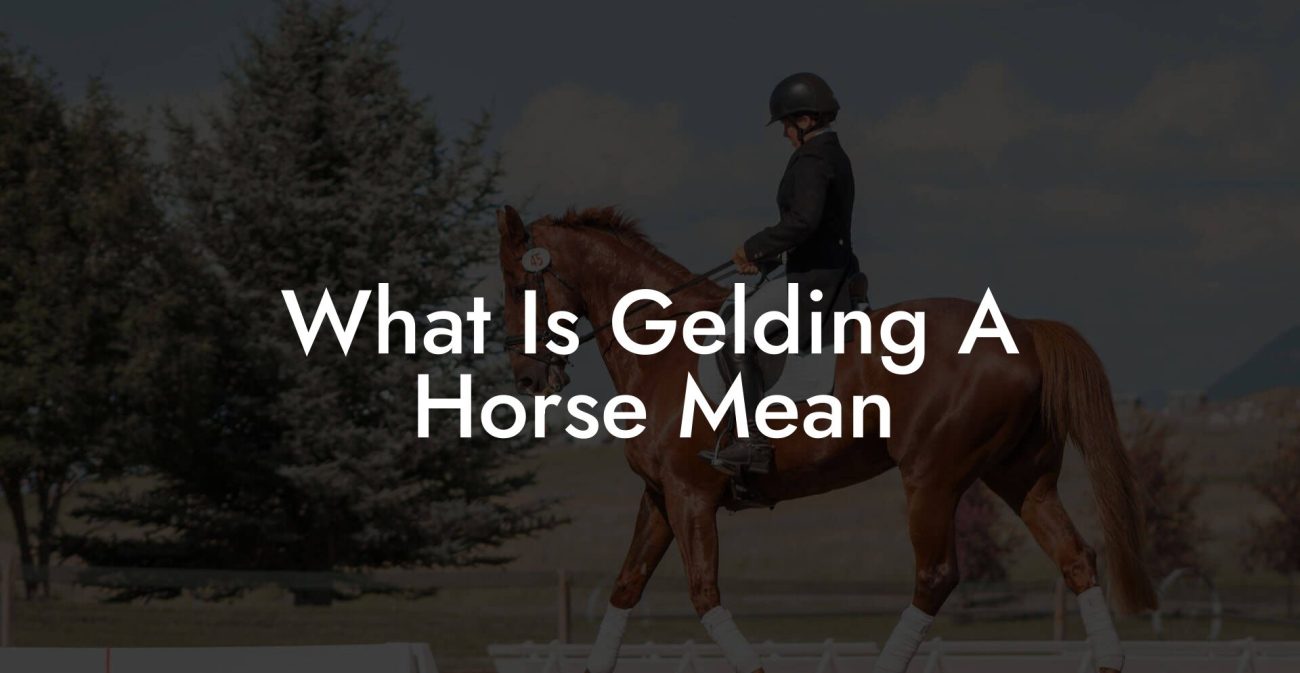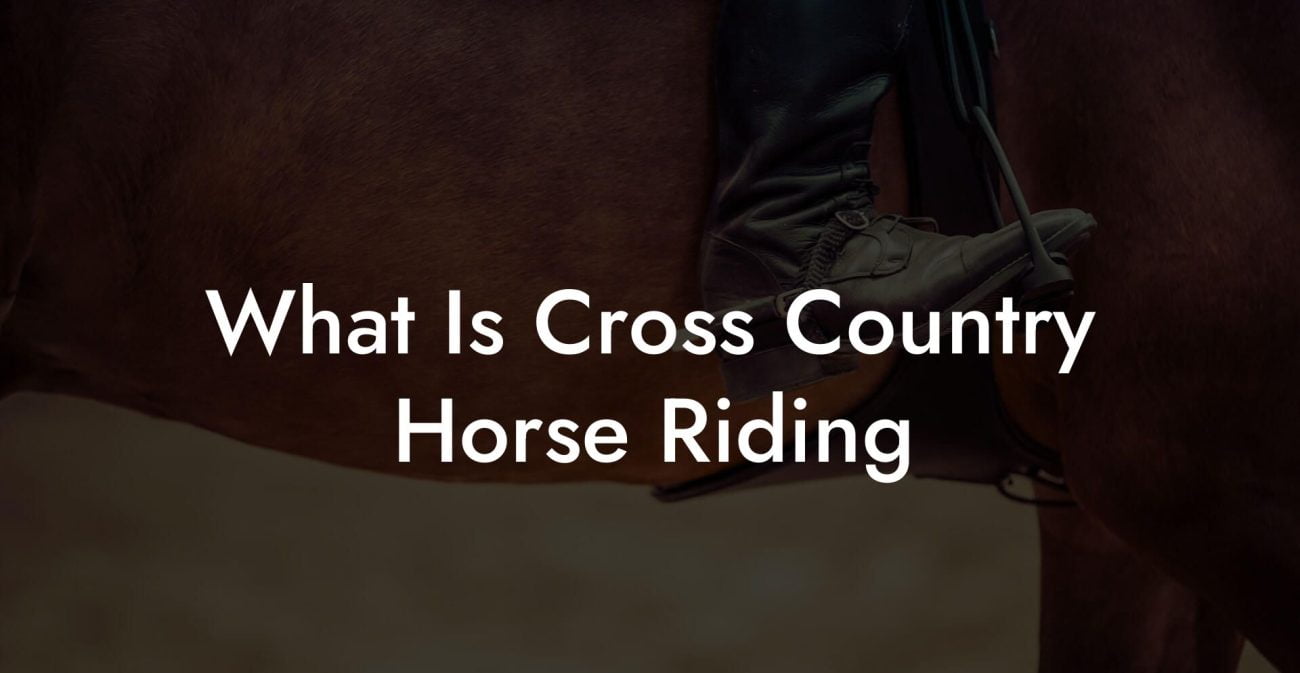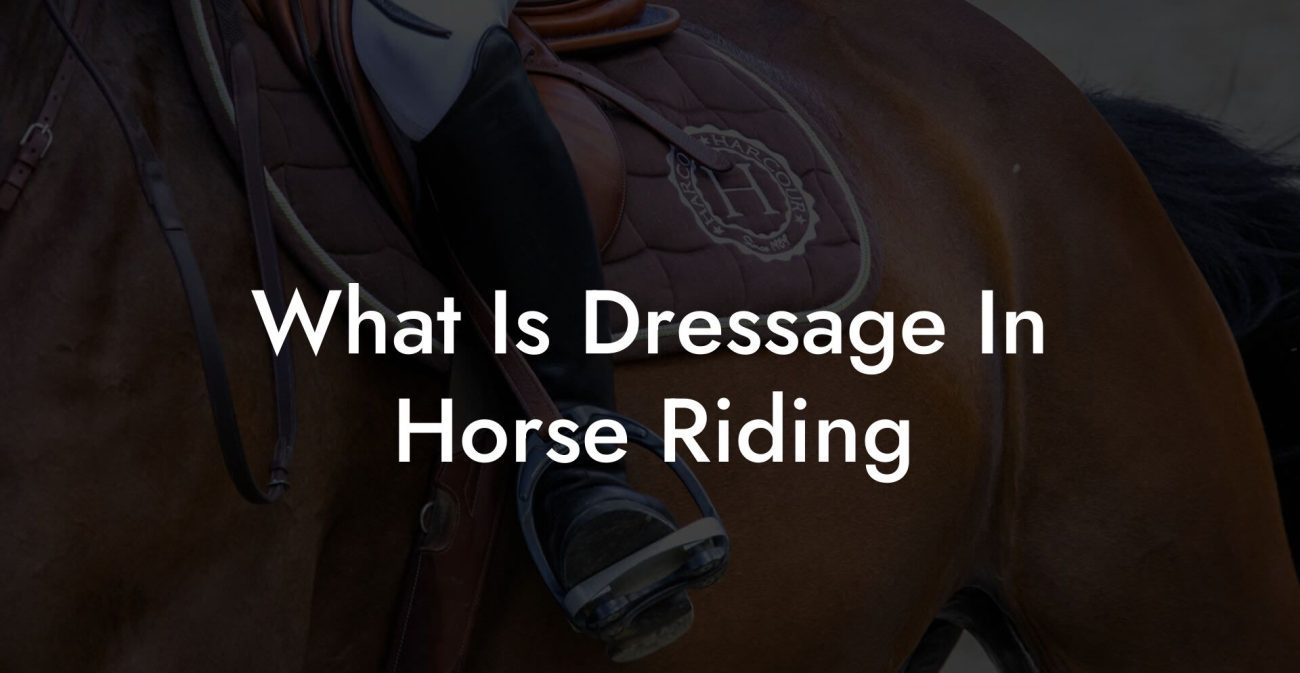Ever witnessed your noble steed frothing at the mouth like it’s auditioning for a spot in a quirky Netflix series? While the absurdity of a horse sporting a bubbly grin may initially spark a chuckle, understanding what it truly means when a horse foams at the mouth is essential for every modern equine caretaker. In this guide, we’re diving hoof-first into the science, the quirks, and the practical wisdom behind this curious phenomenon, mixing expert insights with some Gen-Z flair to keep you informed, entertained, and fully equipped to care for your four-legged friend.
Quick Links to Useful Sections
- Unraveling the Mystery: Why Does a Horse Foam at the Mouth?
- Common Causes and Scientific Explanations
- Decoding Behavioral and Medical Explanations
- Exercise-Induced Foaming
- Stress-Related Reactions
- Dental and Oral Health Issues
- Ingested Toxins or Irritants
- When Foaming Signals a Medical Emergency: Red Flags You Shouldn’t Ignore
- Proper Care and Home First Aid for Foaming Incidents
- Quick Assessments
- Maintain a Calm Environment
- Oral Hygiene and Dental Care
- Hydration and nutrition
- Documentation
- Consulting a Veterinarian: What to Ask and Expect
- The Link Between Nutrition, Hydration, and Equine Oral Health
- Hydration: More Than Just a Sip
- Balanced Diet and Oral Health
- Avoiding Harmful Additives
- Preventative Measures & Best Practices for Optimal Equine Health
- Resources and Community Support: Your Next Steps
- Online Forums and Social Media Groups
- Veterinary Associations and Educational Websites
- Local Equine Events and Workshops
- Equine Health Apps and Digital Tools
- Interactive FAQs: Your Equine Foaming Questions Answered
- Your Journey to Equine Excellence: Embrace the Bubbles!
Unraveling the Mystery: Why Does a Horse Foam at the Mouth?
When you see your horse with a mouth frothing like it’s chewing bubblegum at high speed, it might seem alarming at first glance. But don’t panic, this foaming can be a multi-faceted signal that ranges from completely harmless behavioral expression to an indicator of underlying health issues. Essentially, a horse’s mouth might foam after intense exercise, in bouts of excitement, or even due to environmental factors. However, persistent or excessive foaming might hint at something more serious.
At its core, foaming is a natural response involving saliva production, which plays a critical role in a horse’s oral health. Just as we drool when tasting our favorite food, horses might produce extra saliva in response to stress, overexertion, or even a minor irritation in their mouths. But when does a little foam turn into a red flag? Let’s break down the common scenarios.
Whether you're a seasoned equine enthusiast or a Gen-Z newbie dabbling in horse care, understanding these signals is paramount. Let’s journey through the fascinating blend of physiology, behavior, and environmental influences that contribute to the enigmatic foam.
Common Causes and Scientific Explanations
The phrase “horse foaming at the mouth” might conjure up a variety of images, from a spirited racehorse after a victorious sprint to a stressed-out pony dealing with a pesky dental issue. Let’s explore the most common causes behind this equine phenomenon:
- Exertion and Exercise: During intense physical activity, horses increase their breathing rate, and with the heightened oxygen flow, their saliva production ramps up. This extra saliva, mixed with air, can create a frothy effect around the muzzle.
- Environmental Allergies: Just as humans can sneeze their way through allergy season, horses may foam at the mouth when they inhale irritants like pollen, dust, or mold. Their bodies sometimes react to these allergens with an overproduction of saliva.
- Dental Problems: Overgrown teeth, dental decay, or oral injuries can lead to increased drooling and foaming. Poor dental health is one of the stealthy culprits behind unexpected mouth foam in horses.
- Stress and Anxiety: A nervous or anxious horse may produce extra saliva as a physiological reaction, often enhanced by behavioral stressors, such as travel, sudden changes in the environment, or separation anxiety from familiar herd members.
- Toxins and Ingested Irritants: In rare cases, horses may inadvertently ingest toxic plants or chemicals. The body’s reaction to these substances can cause excessive salivation and foaming, signaling that immediate attention is needed.
- Neurological Conditions: Some neurological disorders, although uncommon, can impair a horse’s ability to swallow properly, resulting in mouth foaming as an unintended side effect.
Recognizing these causes not only gives you a peek into the biology of your horse but also arms you with the know-how to differentiate between a harmless post-exercise foam and a potential health emergency.
Decoding Behavioral and Medical Explanations
The next time you glance at your horse with its frothy visage, try to read between the bubbles. Like us, horses communicate through behavior and physical cues. Here’s what those bubbly signals might be telling you:
Exercise-Induced Foaming
For active horses, intense workouts lead to rapid breathing and excessive saliva production, a completely natural response to physical exertion. Think of it as your horse's way of cooling down, similar to sweating in humans. This kind of foaming is usually brief and subsides once your horse catches its breath.
Stress-Related Reactions
Stress in horses can manifest in several surprising ways, one of which is foaming at the mouth. When a horse experiences anxiety, perhaps during a thunderstorm, a change in routine, or an unexpected interaction, it may produce more saliva as part of its stress response. This type of foaming is generally accompanied by other nervous behaviors, such as pinning ears back or a restless stance.
Dental and Oral Health Issues
A less obvious, yet critical, reason behind foaming is dental discomfort. Horses continuously grind their teeth, and issues like overgrown molars or dental abscesses can cause irritation. The resulting excessive drooling isn’t just unsightly, it signals that a dental check-up might be overdue. Regular dental maintenance is key to ensuring your horse’s comfort and overall health.
Ingested Toxins or Irritants
On more serious occasions, foaming at the mouth may indicate that a horse has ingested something noxious. Toxic plants, chemicals, or spoiled feed can provoke a severe salivation response. When this happens, the foaming is the body’s emergency alert system, urging you to seek veterinary help without delay.
Understanding the context of the foaming behavior is crucial. By noting the circumstances, whether it follows a high-intensity workout, coincides with environmental changes, or emerges unexpectedly at rest, you’ll be better positioned to determine if that foam is friend or foe.
When Foaming Signals a Medical Emergency: Red Flags You Shouldn’t Ignore
While a bit of froth post-run may be perfectly normal, there are scenarios where the foaming acts as a red-flashing neon sign for something more serious. Here’s when you should consider the foaming a potential medical emergency:
- Excessive or Constant Foaming: If your horse is consistently foaming at the mouth without any clear pattern related to exercise or stress, it’s time to get a professional opinion.
- Signs of Pain or Discomfort: When foaming is accompanied by other distress signals, such as labored breathing, reluctance to eat, or unusual lethargy, it could indicate an underlying issue like colic, dental pain, or respiratory distress.
- Changes in Behavior: A frightened or confused demeanor along with foaming might suggest neurological issues or poisoning, warranting immediate veterinary intervention.
- Visible Wounds or Mouth Injuries: If the foaming is localized to an area where there is an obvious injury or laceration, contamination might be causing an infection or abscess to form.
In these situations, timely action can be the difference between a minor health hiccup and a full-blown crisis. It’s essential for responsible horse owners to stay alert, document any abnormal behaviors, and always err on the side of caution.
Remember, your horse might be giving you subtle hints of discomfort, akin to texting you in Morse code, so trust your gut and don't hesitate to call your trusted vet if something feels off.
Proper Care and Home First Aid for Foaming Incidents
When you spot foaming at the mouth, there are a few practical steps you can take at home while preparing to consult with a veterinary professional:
Quick Assessments
First, observe your horse closely. Check for any additional symptoms, such as changes in behavior, unusual breathing patterns, or signs of pain. If the foaming is isolated to moments after exercise and resolves quickly, it might not be cause for immediate concern.
Maintain a Calm Environment
A stressed horse can exacerbate the situation. Ensure your equine companion has a quiet, safe space to rest. Soft bedding, familiar surroundings, and minimal disturbances can help calm your horse, giving its body a chance to recover.
Oral Hygiene and Dental Care
Regular dental check-ups and proper oral care are cornerstones of preventing unnecessary drooling. Invest time in routine dental examinations and consider professional cleanings to keep your horse’s mouth in optimal condition.
Hydration and nutrition
Hydration is key in managing saliva viscosity. Ensure your horse has constant access to fresh, clean water and consider nutritional supplements that promote oral health. A balanced diet supports overall well-being, potentially reducing the likelihood of irritations that lead to foaming.
Documentation
Keep a journal of your horse’s behavior and foaming incidents. Note the time, duration, and any associated activities or exposures. This detailed log can be invaluable for your vet, providing clues that might aid in diagnosis.
These proactive steps can help stabilize your horse’s condition in the short term. However, if the situation persists or worsens, professional intervention is the best course of action.
Consulting a Veterinarian: What to Ask and Expect
When home remedies and careful observation don’t relieve the foaming dilemma, it’s time to consult with a veterinarian. A proactive talk with your vet not only ensures timely intervention but also reassures you that you’re doing everything possible for your horse’s health. Here are some key questions and discussion points for your next vet visit:
- What Are the Likely Causes? Ask your vet for a detailed explanation of the potential causes of the foaming, based on your horse’s specific behavior and history.
- Which Examinations Are Recommended? Inquire about necessary diagnostic tests such as dental examinations, respiratory evaluations, or blood work that can pinpoint underlying issues.
- Are There Signs of Systemic Issues? Discuss whether other symptoms might indicate a broader health problem, such as colic, poisoning, or neurological disorders.
- What Immediate Care Is Best? Get advice on any immediate at-home care, including dietary adjustments, hydration strategies, and recommendations for rest or exercise restrictions.
- What Changes Should I Monitor? Ask which specific behaviors or symptoms should prompt an urgent follow-up, so you know exactly when to act.
A transparent, honest dialogue with your vet will empower you with the knowledge and confidence to manage your horse’s health proactively. It transforms an alarming foaming incident into an opportunity for comprehensive care.
The Link Between Nutrition, Hydration, and Equine Oral Health
Just as a balanced diet can elevate your mood and energy levels, it also plays a significant role in your horse’s oral health, thereby influencing the occurrence of foaming. Nutrition, hydration, and overall digestive health are interconnected elements that can mitigate or exacerbate mouth foam.
Hydration: More Than Just a Sip
Water isn’t merely a thirst quencher; it’s a critical component in maintaining the appropriate consistency of saliva. When a horse is dehydrated, its saliva becomes more viscous, increasing the likelihood of noticeable foaming. Ensure your horse has round-the-clock access to clean water, and consider offering electrolytes during periods of intense exercise or heat.
Balanced Diet and Oral Health
The nutrients found in quality feeds and forages help maintain strong gums and teeth. Incorporate feeds rich in essential vitamins and minerals, such as calcium and phosphorus, to support bone density and dental integrity. Moreover, consider supplements recommended by your vet to reinforce overall oral health.
Avoiding Harmful Additives
Some commercially produced feeds may contain additives or preservatives that could irritate the digestive system and, by extension, the production of saliva. Evaluate the quality of your horse’s food and opt for natural, whole feed ingredients whenever possible.
In summary, holistic nutritional strategies that emphasize proper hydration and balanced feed formulations work together to minimize the factors that could lead to excessive foaming.
Preventative Measures & Best Practices for Optimal Equine Health
Prevention is always better than a frantic last-minute vet call. Establishing a routine that emphasizes general equine health can significantly reduce instances of unexplained mouth foam. Here are some best practices to keep your horse in top shape:
- Regular Vet Check-Ups: Schedule periodic examinations to catch any underlying health issues before they escalate. Consistent dental check-ups and general health assessments can save you time, money, and stress in the long run.
- Consistent Exercise and Cool-Down Sessions: Plan your horse’s exercise regimen to include proper warm-up and cool-down routines. This strategy not only optimizes performance but also helps regulate saliva production during periods of exertion.
- Safe Feeding Practices: Ensure that your horse’s feed is free of contaminants and stored properly. Regularly monitor for any changes in appetite or behavior that might warrant a dietary adjustment.
- Stress Management: Incorporate measures to reduce stress, such as a stable routine, socialization with other horses, and a comfortable living environment. A calm, content horse is less likely to show signs of stress, including excessive foaming.
- Environmental Awareness: Be mindful of farm chemicals, insect repellents, and potential allergens in your horse’s surroundings. Minimizing exposure to irritants can keep your horse’s oral environment balanced.
Integrating these preventative measures into your horse care routine not only reduces the risk of foaming but also promotes overall happiness and longevity for your equine companion.
Resources and Community Support: Your Next Steps
You’re not alone on this journey! The world of equine care is rich with communities, experts, and resources designed to help you navigate every sneaky symptom, including a foaming mouth. For those looking to take their equine care knowledge to a whole new level, consider these resources:
Online Forums and Social Media Groups
There’s a thriving community of horse enthusiasts on platforms like Facebook, Reddit, and Instagram where you can share your experiences, ask questions, and even swap humorous anecdotes about your horse’s quirky behaviors. From detailed care tips to personal success stories, these groups provide both support and camaraderie.
Veterinary Associations and Educational Websites
Reputable organizations, such as the American Association of Equine Practitioners (AAEP) and other local veterinary associations, offer comprehensive guides, webinars, and articles on equine health. These resources often cover topics from dental care to emergency first aid, helping you stay ahead of potential issues.
Local Equine Events and Workshops
Check your local community calendar for horse shows, workshops, and seminars. These events not only provide valuable in-person training and insights from experts but also allow you to network with other horse owners who are just as passionate about equine wellness and quirky care tips.
Equine Health Apps and Digital Tools
In true Gen-Z and millennial fashion, tech-savvy horse owners are turning to apps that track exercise routines, dietary habits, and even oral health check-ups. These digital tools can offer reminders for vet appointments and dental cleanings, ensuring your horse stays in tip-top shape.
By tapping into these communities and resources, you not only enhance your own knowledge but also contribute to a supportive environment that celebrates both the challenges and triumphs of equine care. Remember, every frothy moment is just another opportunity to learn and grow alongside your beloved horse.
Interactive FAQs: Your Equine Foaming Questions Answered
Still have questions swirling around like bubbles in a foaming mouth? We’ve compiled a list of frequently asked questions to help demystify the foaming phenomenon and provide actionable insights for every equine enthusiast.
1. What does it mean when my horse foams at the mouth?
Foaming at the mouth in horses can be a normal reaction after strenuous exercise or during moments of excitement. However, if the foaming is persistent or accompanied by other concerning symptoms, it may indicate stress, dental issues, or a potential exposure to toxins.
2. Is foaming after exercise a cause for concern?
In many cases, foam after a hard run or vigorous play is just a natural physiological response. It generally subsides as the horse cools down. However, if the foaming doesn’t stop or is seen frequently, it’s a good idea to consult your veterinarian.
3. Can dental problems cause a horse to foam at the mouth?
Absolutely. Dental issues such as overgrown teeth, abscesses, or oral injuries can lead to discomfort and excessive saliva production. Regular dental check-ups are essential to keep these issues in check.
4. What environmental factors might trigger mouth foaming?
Exposure to allergens, dust, or chemicals, as well as sudden changes in weather or stable conditions, may prompt a stress response that includes mouth foaming.
5. When should I contact a vet regarding foaming?
Seek professional advice if the foaming is continuous, if your horse shows signs of distress (such as labored breathing, lethargy, or not eating), or if you suspect poison or toxicity.
6. Are there home remedies to reduce foaming in my horse?
While maintaining proper hydration, dental care, and a stable environment can mitigate occasional foaming, persistent issues should be evaluated by a veterinarian. Basic first aid measures include offering water, a calm environment, and close observation.
7. Can stress management techniques help reduce foaming?
Yes, creating a low-stress environment and following a regular routine can significantly reduce incidences of stress-induced foaming.
8. Does nutrition play a role in preventing mouth foam?
A balanced, nutrient-rich diet supports overall oral and systemic health, which in turn can help reduce dental irritations and inflammation that contribute to excessive saliva production.
Armed with a better understanding of these factors, you’re now one step closer to ensuring your horse stays as healthy as can be, even when it’s sporting a bit of unexpected foam.
Your Journey to Equine Excellence: Embrace the Bubbles!
At the end of the day, every foamy episode is not just a quirky trait, it’s a communication tool that your horse uses to signal how it’s feeling. As you gain more insight into this unusual occurrence, you’re better equipped to interpret these signals, ensuring that your horse receives the care and attention it deserves.
Embrace the journey with curiosity and a dash of humor. Whether it’s understanding how exercise, diet, stress management, or a simple dental cleaning can make all the difference, your commitment to your horse’s well-being is what truly matters. With careful observation, proactive care, and a strong supportive community, you can turn even the most bewildering foamy moments into opportunities for growth, connection, and enhanced equine excellence.
So, the next time you see a bit of froth around your horse’s mouth, take a deep breath, assess the situation, and remember that you have the knowledge and resources to ensure your horse remains both happy and healthy. Here’s to embracing the bubbles, and the beauty, of equine care!

